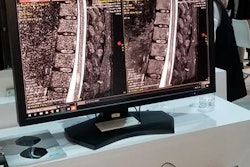
The ongoing integration of artificial intelligence (AI) into healthcare can increase the amount of time clinicians are able to spend with patients and collaborating with their coworkers on preventive care, according to the results of a recent survey conducted by GE Healthcare and MIT Technology Review Insights and published online December 16.
In a survey of approximately 900 healthcare professionals, the groups found that 70% of healthcare providers have considered or have already integrated AI into their practice. Institutions that have adopted AI reported that the technology has helped improve the efficiency of hospital workflow and "rebalance" physician workload, allowing physicians to spend more time on patient-focused tasks and collaborating with colleagues.
Almost half of medical professionals said that AI applications have allowed them to spend more time in direct patient care, including patient consultations and surgeries, and many physicians claimed that they are now spending about 66% less time on writing reports and other administrative tasks than their peers. The majority of survey respondents also agreed that AI will improve their performance by boosting competition (81%) and that it will improve revenues (80%).
These benefits will also have positive implications for the fight against burnout among healthcare employees, according to the survey. Roughly 80% of survey respondents indicated that AI has contributed to removing barriers and reducing burnout.
The survey highlighted several other findings, including the following:
- 75% of medical staff reported that AI has improved predictions regarding disease treatment.
- 78% of business leaders reported that AI applications have demonstrated workflow improvements.
- 60% of clinicians expect to spend more time performing procedures and less time on administrative work.
- 68% reported that AI has given them more time to spend on collaborating with staff from other specialties.
Healthcare institutions appear to have picked up on these trends already, with nearly 80% stating that they plan to increase their AI expenses and 75% planning to develop their own AI algorithms in the next two years, the group found.


















